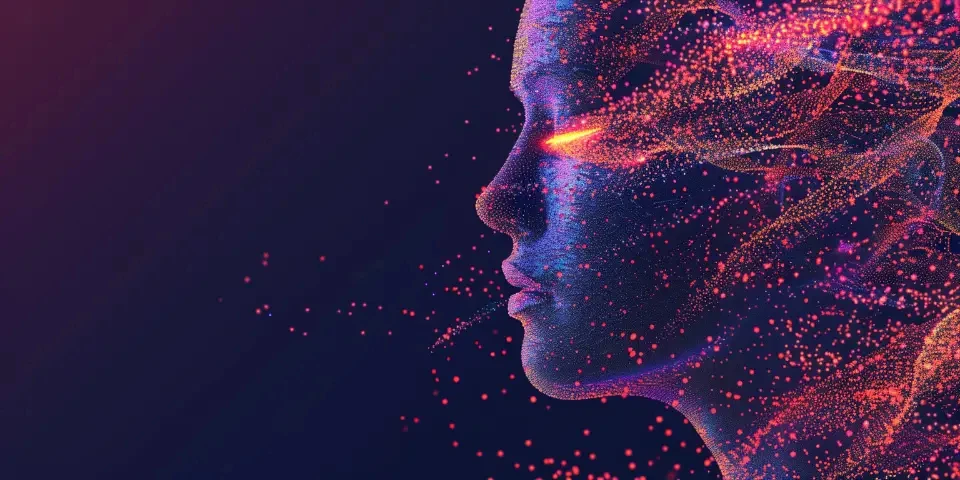The AI Influence on the Entertainment Industry Evolution of Storytelling and Creativity
The entertainment industry has undergone a significant transformation with the advent of Artificial Intelligence (AI). AI has brought about a revolution in the way stories are told and creativity is nurtured. In this article, we will explore the various aspects of AI's influence on the entertainment industry, highlighting its impact on storytelling and creativity.
1. Enhancing Personalized Experiences
AI has the ability to analyze vast amounts of data and understand individual preferences, enabling the entertainment industry to offer personalized experiences. Algorithms can recommend movies, music, and books based on a person's interests, making entertainment consumption more tailored to individual tastes.

This personalized approach allows for deeper engagement and increased customer satisfaction. Streaming platforms like Netflix and Spotify extensively employ AI algorithms to suggest content, leading to longer user sessions and better customer retention.
2. Automating Content Creation
AI has revolutionized content creation by automating certain aspects, such as scriptwriting, video editing, and music composition. Natural Language Processing (NLP) algorithms can generate scripts based on predefined parameters, easing the burden on screenwriters and enabling faster turnarounds.
Additionally, AI-based video editing tools like Adobe Premiere Pro's "Auto Reframe" can analyze footage and automatically recompose shots, saving time and effort for video editors. AI-powered music composition software, such as Jukedeck and Amper Music, can generate unique soundtracks based on desired moods or emotions.
3. Virtual Reality (VR) and Augmented Reality (AR) Experiences
AI has significantly enhanced VR and AR experiences in the entertainment industry. Deep learning algorithms enable more realistic and immersive virtual environments. AI-powered facial recognition and gesture tracking technology add a layer of interactivity to these experiences.
Platforms like Oculus and Vive are employing AI to create intelligent agents within virtual worlds. These agents can respond to user inputs and provide a more realistic and engaging virtual experience. This has opened up new possibilities for gaming, interactive storytelling, and immersive simulations.
4. Creating Realistic Characters
AI has played a crucial role in creating realistic characters in movies and video games. Machine learning algorithms can analyze human behavior, facial expressions, and gestures to generate lifelike characters. This has led to advancements in CGI (Computer Generated Imagery) and character animation.
One notable example is the use of AI in creating the digital character Thanos in Marvel's Avengers movies. AI models were employed to capture the nuanced facial expressions of actor Josh Brolin and translate them onto the digital character.
5. Improving Audience Engagement
AI has enabled entertainment companies to better understand and engage with their audience. Sentiment analysis algorithms can gauge audience reactions and feedback, allowing producers to make informed decisions on future content creation.
Moreover, AI-based chatbots and virtual assistants provide personalized recommendations and engaging conversations, enhancing the overall entertainment experience. Companies like Amazon, with their Alexa AI assistant, have integrated entertainment functionalities that allow users to request and play music, movies, or TV shows with simple voice commands.
6. Enhancing Gaming Experiences
AI has revolutionized the gaming industry by improving game design, creating realistic non-player characters (NPCs), and enhancing gameplay. AI-powered algorithms can analyze player behavior and adapt game environments to provide challenging, yet enjoyable experiences.
Furthermore, AI algorithms enable NPCs to exhibit more human-like behavior, making gaming interactions more immersive and engaging. Games like "FIFA" and "NBA 2K" employ AI to simulate real player movements and decision-making, enhancing the realism of the gameplay.
7. Data-Driven Decision Making
AI enables entertainment companies to make data-driven decisions by analyzing vast amounts of user data. This data can provide insights into consumer preferences, allowing producers to create content that resonates with their target audience.
For example, streaming platforms like YouTube and TikTok employ AI algorithms to analyze viewer behavior and suggest content that is more likely to be consumed and shared. This data-driven approach maximizes the potential reach and impact of entertainment content.
8. Ethical Concerns in AI-generated Content
While AI has brought significant advancements to the entertainment industry, it also raises ethical concerns. The use of AI in content creation raises questions about ownership and authenticity. Copyright issues and the potential for misuse of AI-generated content are areas that require careful consideration and regulation.
Furthermore, the rise of deepfakes, AI-generated videos that manipulate or fabricate content, poses challenges to the authenticity of media and can have far-reaching consequences.
Conclusion
The influence of AI on the entertainment industry is undeniable. It has transformed storytelling and creativity by enhancing personalized experiences, automating content creation, improving audience engagement, and creating realistic characters. However, ethical concerns surrounding AI-generated content require careful scrutiny and regulation. As AI continues to evolve, its impact on entertainment will continue to shape the industry's future.
Frequently Asked Questions
Q1: How does AI improve personalized recommendations on streaming platforms?
Streaming platforms analyze user preferences, watch history, and behavior using AI algorithms. This data is then used to recommend content that aligns with the user's interests, enhancing the personalized viewing experience.
Q2: Can AI completely replace human creativity in content creation?
No, AI can automate certain aspects of content creation but cannot fully replace human creativity. It can assist in generating ideas, facilitating editing, or composing music, but the artistic vision and storytelling skills of humans remain essential.
Q3: Are AI-generated characters replacing human actors in movies?
AI-generated characters are not replacing human actors but rather complementing them. AI is used to enhance the visual effects and animations, creating more realistic and lifelike characters on screen.
References
1. Silver, D., Schrittwieser, J., Simonyan, K., et al. (2017). "Mastering the game of Go without human knowledge." Nature, 550(7676), 354-359.
2. Fevola, R., & Gamper, H. (2020). "AI in movies and media: The state-of-the-art." ai4media. Retrieved from https://www.ai4media.eu/news/ai-in-movies-and-media-the-state-of-the-art
3. Radford, A., Metz, L., & Chintala, S. (2015). "Unsupervised Representation Learning with Deep Convolutional Generative Adversarial Networks." In Proceedings of the International Conference on Learning Representations (ICLR).
Explore your companion in WeMate